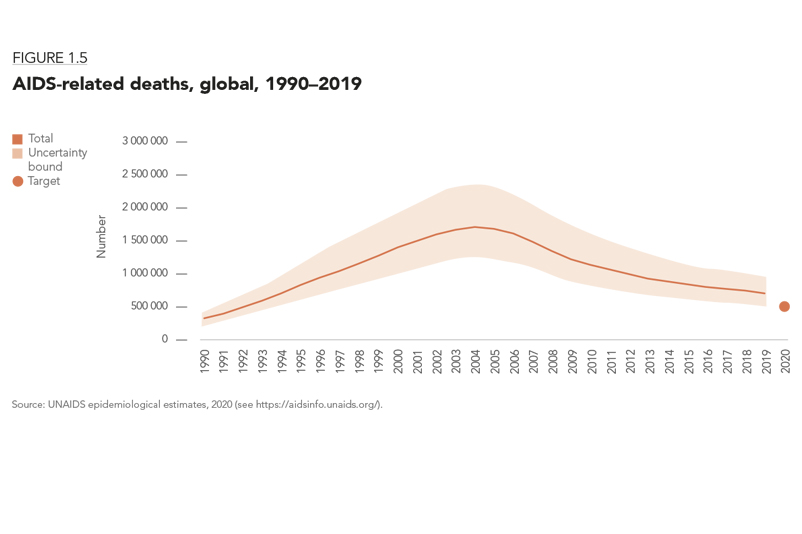Increased access to antiretroviral therapy has averted an estimated 12.1 million AIDS-related deaths since 2010. Despite this progress, hundreds of thousands of people are dying each year of a disease that has multiple effective and relatively inexpensive treatment regimens available. The estimated 690 000 [500 000–970 000] lives lost due to AIDS-related illnesses worldwide in 2019 was a 39% reduction since 2010, but a ways off the 2020 target of less than 500 000 deaths.
The generally higher coverage of antiretroviral therapy among women is reflected in the lower number of AIDS-related deaths among women and girls globally in 2019: 300 000 [220 000–420 000] compared with 390 000 [280 000–560 000] among men and boys. There were 46% fewer deaths due to AIDS-related illness among women and girls in 2019 than in 2010, compared with 32% fewer deaths among men and boys over the same period. Even though there are much more females than males among people living with HIV in sub-Saharan Africa (15.9 million women vs 9.8 million men), the epidemic claimed a similar number of lives in the region in 2019: an estimated 220 000 men and boys and an estimated 220 000 women and girls.
The region with the most rapid scale-up in HIV treatment, eastern and southern Africa, is unsurprisingly also the region with the most rapid decline in AIDS-related mortality: 49% between 2010 and 2019. The impact of expanded access to treatment is also evident in the Caribbean, western and central Africa, and western and central Europe and North America: all three regions had 37% fewer AIDS-related deaths in 2019 than in 2010. There were 28% fewer deaths due AIDS-related illnesses in Asia and the Pacific over the same period, while declines were less dramatic in Latin America (8%) and in the Middle East and North Africa (2%). An opposite trend prevails in eastern Europe and central Asia, where deaths due to AIDS-related causes increased by 24% between 2010 and 2019.
